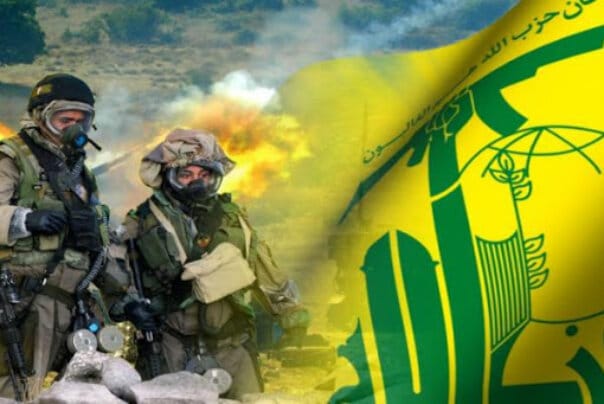What will be the strategy of the Zionist regime for Hezbollah?
From the beginning of its formation, Hezbollah has defined its existence based on the confrontation and struggle with the Zionist regime and the protection of Lebanon against Israeli occupation. This eventually led to the withdrawal of Israeli forces from the Lebanese border in 2000. In the following years, the ongoing tension between Israel and Hezbollah repeatedly reached the border of full-scale war, and in 2006, a direct conflict between the two sides occurred, which ended with a UN resolution after heavy casualties.
The situation that prevailed between Israel and Hezbollah after 2006 can be seen as a kind of unstable deterrence; In these years, scattered rocket and drone attacks were carried out from both sides, but confrontation and full-scale war did not take place on the borders of Lebanon and Israel. The continuation of such conditions after October 7 faced many challenges.
Last month, 1,307 rockets were fired from southern Lebanon toward northern areas, which was the highest number of rockets fired since the beginning of the war against Gaza. Hezbollah has also recently announced the targeting of the Ramot Naftali base with suicide drones and Katyusha missiles, as well as a drone attack on the headquarters of the Al-Sahl Battalion in the Beithelel base of the Israeli army. This shows that Israel today is not facing the same Hezbollah as it was in 2006, and the military power of this movement, especially in the field of missile defense, is not similar to previous years and has experienced significant improvement.
Now, on the one hand, Israel is seeking to prevent surprise attacks similar to October 7, and in this regard, it considers the preemptive attack on Hamas to be an effective measure, on the other hand, it is seeking to ensure security in the northern borders so that the Israeli residents of these areas can return to their homes. come back However, choosing an appropriate approach has many complexities.
The options in front of Israel
In its recent actions, Hezbollah has shown that it relies on the element of surprise; In other words, Hezbollah has never fully demonstrated its military and missile capabilities, but in response to various situations, it has displayed its deterrent power in defending the southern borders of Lebanon against Israeli attacks, rather than the false depictions of the Zionist regime in psychological warfare. prevent media
This has caused the Israeli leaders to doubt; Currently, some believe that a pre-emptive attack against Hezbollah will lead to the disarmament of this movement, and a delay in offensive military actions will make Hezbollah more equipped and capable. However, another group of Israeli military decision-makers consider Hizbollah’s military power to be unpredictable, and confronting it based on incomplete information is far from logical.
Since the beginning of the war against Gaza and earlier in the suppression of the Palestinians, Israel has believed in the Dahiya doctrine; According to this doctrine, in asymmetric warfare, the military deliberately targets civilian infrastructure to increase deterrence by increasing civilian suffering. The basis of this doctrine is to attack the people to regulate and control the behavior of the military actor of the opposite side.
Tel Aviv pursues several goals with this doctrine; First, to increase the costs of confronting Israel in such a way that it serves as a lesson for other actors who intend to attack this regime. In the next degree, Israel seeks to make the resistance difficult, and finally, by targeting civilians, it seeks to weaken their support for the resistance groups.
Adopting this approach is not so easy for Hezbollah; First, Israel does not have comprehensive information on the formation of Hezbollah forces and the missile defense capabilities of this movement. On the other hand, Hezbollah is not the only actor active in Lebanon, and targeting civilians in this country means enmity with all parties and groups that play a role in Lebanese politics. Right now, further antagonism is the last thing Israel’s leaders want to do.
In recent months, in addition to controlled airstrikes, Israel has been trying to maintain a limited war with Hezbollah, which can control the battlefield and prevent its expansion, and to create a degree of deterrence against this movement, Psychological warfare has not been neglected in the media either; The threats to Israel, which are raised by the leaders of this regime and play the role of deterrents, have always increased. To the extent that Israel’s Minister of War Gallant stated: “Israel will attack every bit of Lebanese territory where Hezbollah has assets and return Lebanon to the Stone Age.” But the reality has shown that such claims are only limited to media rhetoric.
Currently, Israel has 2 ways ahead; First, it should maintain its deterrent threats and continue the current situation in the form of a limited war with Hezbollah. It will be difficult to continue this process with Israel’s approach of assassinating Hamas military leaders and targeting civilians in Lebanon. Although Israel and Hezbollah are not willing to form a full-scale war, Israel’s provocative actions make it impossible to maintain a similar situation before the Gaza war.

